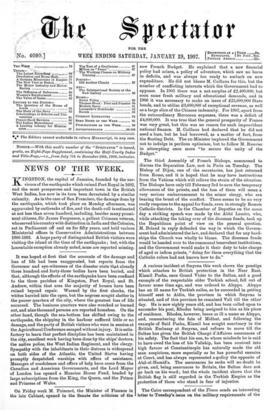On Friday week M. Poincare, the Minister of Finance in
the late Cabinet, opened in the Senate the criticism of the new French Budget. He explained that a new financial policy had arisen, a policy of adventure, which saw no harm in deficits, and was always too ready to embark on new expenditure. He did not blame M. Caillaux for this, but the number of conflicting interests which the Government had to appease. In 1905 there was a net surplus of 22,400,000, but soon came fresh military and educational demands, and in 1906 it was necessary to make an issue of £25,600,000 State bonds, and to utilise £3,680,000 of exceptional revenue, as well as a large slice of the Chinese indemnity. For 1907, apart from the extraordinary Moroccan expenses, there was a deficit of E4,000,000. It was true that the general prosperity of France was very great, but this was no reason for such improvident national finance. M. Caillaux had declared that he did not need a loan, but he had borrowed, as a matter of fact, from the floating Debt. The ex-Minister implored the Government not to indulge in perilous optimism, but to follow M. Rouvier in attempting once more "to secure the unity of the Budget."






































